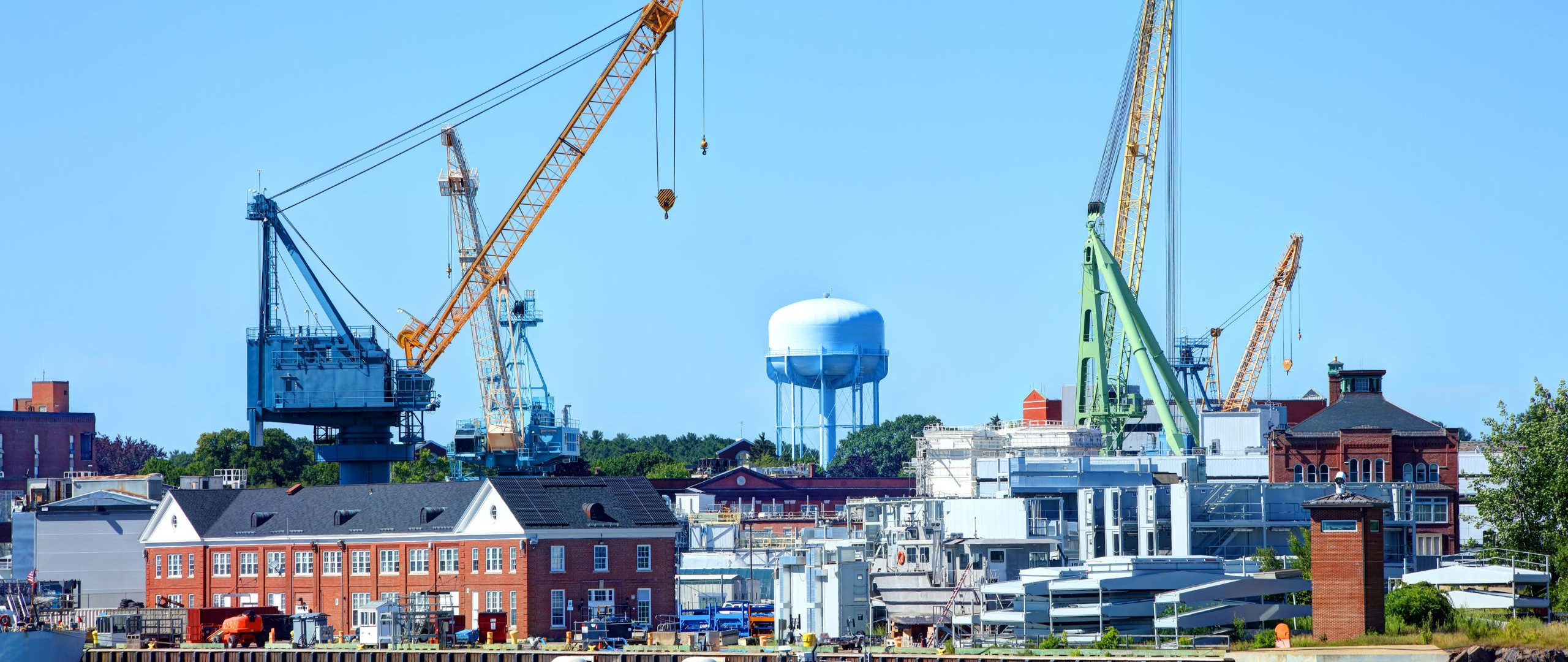When opening a location abroad, a company faces many challenges. Establishing a presence in the United States means navigating numerous tasks, including analyzing and balancing different regional regulations, varying business costs and different cultural conditions. The complexity of the US market sometimes requires companies to consider factors such as geographic proximity to customers and industry clusters, availability of onboarding programs and skilled labor, energy costs and availability, adequate transportation infrastructure, and environmental geological parameters. When evaluating potential locations for investment, companies must therefore consider a number of important aspects. We explain the most important factors below.
Companies are often faced with the fundamental question of whether it is worth investing in an office, logistics center or production facility in the USA.
If a company has important customers based in the United States who could be served much more efficiently locally, or if there is great potential to significantly expand the customer base by establishing its own operations in the US market, the move across the Atlantic often makes sense from a business perspective.
However, when deciding where exactly in the United States is the best location for the new production facility or office, there are numerous other aspects to consider in addition to geographical proximity to the customer.
The United States consists of more than 3,000 counties in 50 states, each with its own business and tax regulations, financial incentive mechanisms, labor market conditions and environmental influences. Gathering and processing this information can be challenging, and the optimal entry point is often difficult to determine.

Setting up a production facility close to the largest customer may seem obvious, but it is not always the best strategy. Other key factors that influence the long-term profitability of the location include
Preferred regions for the exchange of goods and local investments always depend on the respective industry and the country of origin. It is therefore difficult to make a general statement about which US regions are particularly attractive.
For example, in addition to the Midwest, and in particular Michigan, Ohio and Indiana, the automotive industry has been focusing strongly on the Southeast since the early 2000s, with North Carolina, South Carolina and Georgia in particular attracting significant investment from Germany.
States with a large Spanish-speaking population, such as Florida or Texas, tend to be unsurprisingly attractive to companies from Spain.
In addition, accessibility to transport infrastructure is crucial to keeping transportation costs low. US states with well-developed transportation networks, large ports and international airports offer considerable logistical advantages.
California, Texas and New York are examples of states with excellent infrastructure that facilitates access to national and international markets.
Memphis, known as FedEx's "super hub", is an example of a transportation hub with extensive air freight shipping options, access to inland waterways and important rail connections. For example, the geographical location and excellent transport links played a key role in the decision to locate the Swiss company Georg Fischer Casting Solutions AG in the state of Georgia.
Some US states offer special logistics and industrial parks that support companies through lower energy costs or customized logistics solutions. These parks are often strategically located near major transportation hubs to optimize the flow of goods in supply chains.
The local availability of suitable industrial space in particular is becoming an increasing challenge in economically dynamic regions around booming cities such as Denver or Charlotte. Energy supply can also be a regional exclusion criterion for energy-intensive production processes. The establishment of international battery manufacturers or data centers in particular can have a decisive influence on the amount of electricity available for other industrial settlements. For this reason, available and suitable industrial sites and the local energy infrastructure should be analyzed as a central element of the site selection process as early as possible.

Another important aspect of location planning in the United States is the availability of qualified specialists. Because without a concrete plan to hire US specialists in your company, you have no chance of being granted a US work visa. You must demonstrate very clearly to the US authorities that your company offers added value in the US market, for example by creating jobs for US citizens.
US states with a high concentration of universities and research institutions, such as Massachusetts and California, provide access to a large pool of highly skilled labor. These states actively promote collaboration between educational institutions and businesses to ensure that training meets the needs of industry.
Some states even have special initiatives to promote training in specific sectors. For example, North Carolina offers programs to promote training in biotechnology and life sciences, while Georgia has initiatives to support the aerospace industry. The availability of skilled labor and specific training opportunities can therefore be a deciding factor when choosing a location.

Training programs in the USA
In December 2023, Miele announced a new production facility in Opelika, Alabama, to meet the growing demand for German kitchen appliances in the USA. Access to qualified specialists and adequate training programs were particularly relevant for the decision-makers here.
Economic development organizations at all levels can help foreign companies to identify or jointly develop suitable training programs.
"Georgia Quick Start" is one example. This program connects (future) employers with local and technical universities in order to create joint training programs that meet the needs of the respective company.
A good understanding of the existing financial incentive mechanisms and tax systems in the USA is essential for the evaluation of potential investment locations. This is because tax incentives and tax waivers can vary considerably in the United States, both in terms of their type and scope as well as the basic conditions for support. This means that the various US states offer different incentives and support options that can promote specific industries and make market entry much easier.
Financial support options include
For example, Delaware is known for its business-friendly tax environment, making it a popular location for start-ups. Other states such as Texas and Florida do not levy income tax, which is attractive to many companies.
As mentioned, some states offer special programs to support specific industries. California, for example, has extensive support programs for the technology and film industries, while states such as Michigan and Ohio specifically support the automotive industry. These programs can take the form of tax incentives, research and development funds or infrastructure investments.
Nevertheless, incentives should only complement, not dominate, the location decision. Thorough research and careful consideration of all relevant factors are essential to understand the true value of the financial incentives available and the associated requirements.
For many years, the US Visa Service has been a member of the TBIC - Transatlantic Business & Investment Council and thus part of an extensive international network. As the leading representative of North American business development organizations in Europe, the TBIC aims to promote transatlantic trade and investment.
The international members of the TBIC include various representatives from over 100 US regions, who, as a network, support European investors in finding suitable US sites for their business activities and facilitate their access to the US market.

Clusters are geographical concentrations of interconnected companies, specialized suppliers, service providers and related institutions in a specific sector. They promote innovation and efficiency and are therefore attractive investment locations.
The most important clusters in the USA include Silicon Valley for the tech and IT industry, Detroit for the automotive industry, New York City for financial services and Boston for biotechnology.
Companies benefit from clusters through access to skilled labor, established supply chains, education and research facilities, as well as diverse networking and collaboration opportunities. For foreign companies, locating in a cluster offers a competitive advantage by leveraging existing networks and resources and strengthening their innovation and growth capabilities in a supportive environment.
One disadvantage, however, can be to compete for local workers with companies that are better known in the USA.
Finding the right location for your company in the United States is of great importance. But assessing the potential of 50 states and over 3,000 counties in the US remains a challenge.
Take advantage of the expertise and network of our partner TBIC (Transatlantic Business & Investment Council) for your site selection in the USA.
Source:
© Transatlantic Business and Investment Council (TBIC), LP
Wir und unsere Partner nutzen Cookies, um personenbezogene Daten wie z.B. Browsing-Daten zu speichern und abzurufen, um z.B. Inhalte und Werbung bereitzustellen und zu personalisieren sowie die Verwendung der Website zu analysieren und das Benutzererlebnis zu verbessern. Sie erfahren mehr über die Zwecke, für welche wir und unsere Partner Cookies einsetzen, wenn Sie unten auf den Button „Cookie Einstellungen“ klicken. Hier können sämtliche Einstellungen auch geändert werden. Nachträglich kann man jederzeit seine Cookie-Auswahl überdenken oder seine Einwilligung widerrufen, indem man auf den Link zu den Cookie-Einstellungen im Footer unserer Webseite klickt. Beachten Sie bitte, dass das Blockieren einiger Cookie-Typen unsere Möglichkeiten zur Bereitstellung von auf Ihre Interessen zugeschnittenen Inhalten haben kann oder einige Funktionen der Webseite nur eingeschränkt zur Verfügung stehen.
Durch klicken auf “Alle Cookies akzeptieren” stimmen Sie unserer Nutzung und der Weitergabe Ihrer Daten an unsere Partner zu.